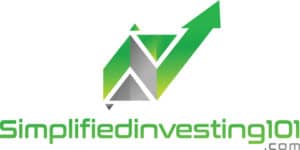
Questrade do not have physical branches and is only available online. People are critical with Questrade because of this reason.
Questrade, like the big banks, is safe since they are regulated by IIROC (Investment Industry Regulatory Organization of Canada) and a CIPF member. In case of bankruptcy, Questrade accounts are insured up to $10 million per client through a private insurance, and an additional $1 million per account is CIPF insured.
Also, they offer 100% reimbursement for any unauthorized transactions in your Questrade account.
Questrade was founded on 1999 and received Canada’s Best Managed Companies award on 2020 for ninth year in a row.
IIROC (Investment Industry Regulatory Organization of Canada) is the national self-regulatory organization which oversees all investment dealers and trading activity on debt and equity marketplaces in Canada to protect investors. (iiroc.ca)
CIPF (Canadian Investor Protection Fund) protects investor assets in case of bankruptcy of a CIPF member.
Operating for more than 20 years, Questrade has $25 billion in assets under administration and more than 50,000 new clients are opening an account every year.
How to Confirm Questrade is an IIROC and CIPF member
Questrade Inc. is listed as one of IIROC Dealer members on the members list page of IIROC website. Big banks such as RBC Direct Investing Inc., BMO InvestorLine Inc., Scotia Capital Inc., TD Securities Inc., etc. are also members and regulated by IIROC.
Investment Dealers in Canada are required by law to register to IIROC. IIROC aims to protect investors’ accounts.
On the members list page on cipf.ca, Questrade Inc. is listed as a CIPF member. The big banks are also members of CIPF.
Private Insurance
Aside from $1 million insurance per client for Questrade being a CIPF member, Questrade purchased an additional $10 million in coverage for each client through a group of insurers called the Lloyd’s of London.
These insurance will kick in if Questrade Inc. goes bankrupt. Both self-directed and managed accounts are covered.
Is Questrade safe with SIN
SIN is generally required by investments dealers to report the trades to CRA for income tax purposes. On non-registered accounts like margin accounts, SIN is used for CRA to make sure that right amount of taxes are declared and paid during tax season.
Questrade and other investment dealers in Canada are safe for SIN since they are regulated by the IIROC. SIN is required to comply with IIROC rules, securities regulations, and federal legislations such as anti-money laundering and tax legislation for income tax purposes. (Source)
For registered accounts, Questrade submits to CRA the amount of contributions and withdrawals done by an individual, and SIN is used as verification for the identity of the person.
Advisors/firms ask for these information to comply with IIROC rules, federal legislation (such as anti-money laundering and tax legislation), securities regulations and/or international agreements. (Source)
- Full legal name and date of birth
- Occupation
- Politically exposed persons*
- Third parties with a financial interest or trading authority over your accounts
- Intended use of your account
- Source of funds (Savings, salary, etc.)
- Your signature
- Social insurance number
- Citizenship
Kinds of Investments that are CIPF Insured
According to CIPF.ca, CIPF covers cash, securities, futures contracts, and segregated insured funds in the event of insolvency, that is, if a CIPF member firm has gone bankrupt.
Securities include bonds, GICs (guaranteed investment certificates), shares or stock of a company, units or shares of an investment fund such as mutual fund or an ETF (exchange-traded fund), and units of limited partnerships.
How does Questrade makes money
Questrade makes money by charging commission fees of around $5-$10 for every buy or sell stock trade, and they also charge fees when trading mutual funds, ETF, call and put options, and other assets. Commission fees can easily add up, especially for day traders and active traders.
For active traders, checking monthly statements can help to monitor the total amount of commission fees paid.
Questrade Trading Fees
Stocks
Questrade charges 1 cent per stock with $4.95 minimum, $9.95 maximum per trade. Thus, buy or sell trades less than 495 shares costs $4.95. Most people’s trades are less than 495 shares, unless a person is trading penny stocks or have a large account.
In addition, Questrade pass ECN fees (fees charged by stock exchanges like NYSE, TSE, NASDAQ) to its users. These ECN fees varies between different stocks. For the most part, one can expect an ECN fee of roughly $0.01 for every 3 shares. (Full details on ECN fees)
In comparison, the big banks usually charges a $9.95 flat fee per trade. For both Questrade and the big banks, buying CAD stocks will have fees in CAD and trading US stocks will result in US dollar fees.
For example, let us say I bought 300 stocks at $50 USD each. On Questrade. that will have a commission fee of $4.95 USD (less than 495 shares) plus $1.00 USD (1 cent every 3 shares), which will be a commission fee of around $5.95 (ECN fees varies).
Questrade
- Minimum of $1,000 to open an account
- $4.95 commission fees for every stock trade (buy or sell)
- 2% US dollar exchange rate fee
- Questrade is operating for more than 20 years. More than 200,000 new accounts every year
- Platform is a bit more complicated than Wealthsimple Trade
Visit questrade.com for more details.
Questrade – How to Buy and Sell Stocks
ETF
Buying an ETF with Questrade is advertised as “Free” on Questrade website, but they still charge ECN fees for ETFs.
Buying 100 units of an ETF at $40 each may result to a fee of around $0.33 (assume 1 cent every 3 units).
On the other hand, selling an ETF costs $4.95 plus the ECN fees. Using the same example, selling 100 units of an ETF costs around $5.28 ($4.95 + $0.33).
Is Questrade good for beginners?
Wealthsimple Trade may be a better alternative for beginners since their platform is easier to use. However, Questrade charges lower fees for US stocks at around $5-10 per trade instead of 1.5% on Wealthsimple Trade. Fees can easily add up for accounts more than $5,000 and active traders.
For example, buying $5,000 of US stocks on Wealthsimple Trade will result to a commission fee of $75 (1.5% of $5,000). On the other hand, the same transaction will only be charged around $7 on Questrade.
Ideally, it may be best for beginners to start with small amounts on Wealthsimple Trade and move to Questrade after a couple of months of experience.
On the other hand, Questrade offers more investment options like call and put options, mutual funds, bonds, etc., and Questrade quotes real time stock prices for free, while Wealthsimple Trade is 15 minutes delayed.
Getting used to a platform like Questrade early on may help on the long run.
Questrade account Minimum Funding
Questrade requires a minimum of $1,000 initial deposit to open any account such as TFSA, margin, and RRSP accounts. After opening, you can start buying stocks, bonds, ETFs, options, mutual funds, etc., and only keep $250 to keep your account active.
For more advanced trading, Questrade requires $5,000 minimum for Level 3 trading to trade bullish and bearish option spreads. Also, $25,000 minimum is required for Level 4 trading to write naked call and put options, a risky trade.
Should I use Questrade or Wealthsimple Trade?
Wealthsimple Trade assets is held by ShareOwners Inc., which is CIPF insured up to $1 million, whereas Questrade purchase an additional insurance of up to $10 million per client. Questrade was founded on 1999 while Wealthsimple was a relatively new platform, founded on 2014.
In general, Wealthsimple Trade platform is more easier to use for beginners. Wealthsimple Trade costs cheaper for CAD stocks, whereas Questrade offers lower fees for US stocks at around $5 per trade instead of 1.5%. Wealthsimple Trade displays 15 min delayed quotes and only stocks and ETFs, while Questrade offers real time quotes and offers stocks, ETFs, mutual funds, bonds, gold, etc.
